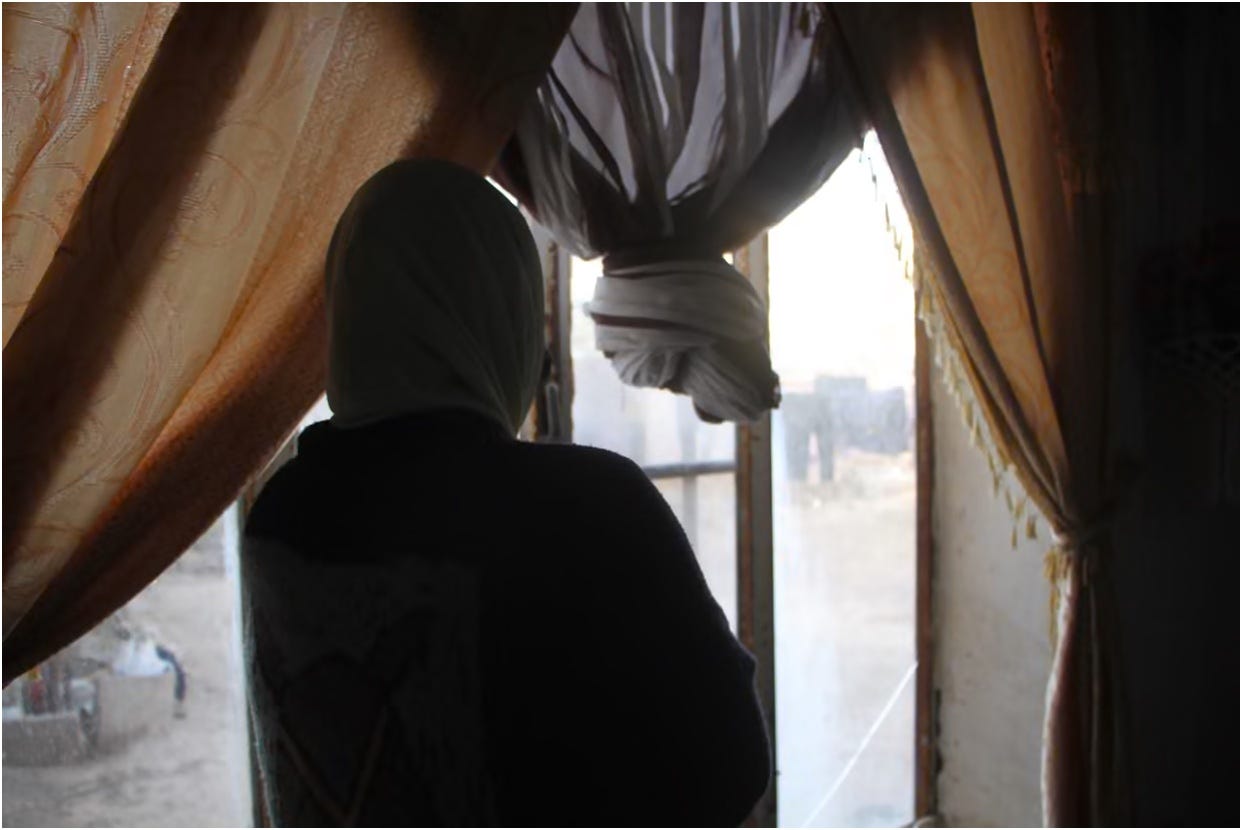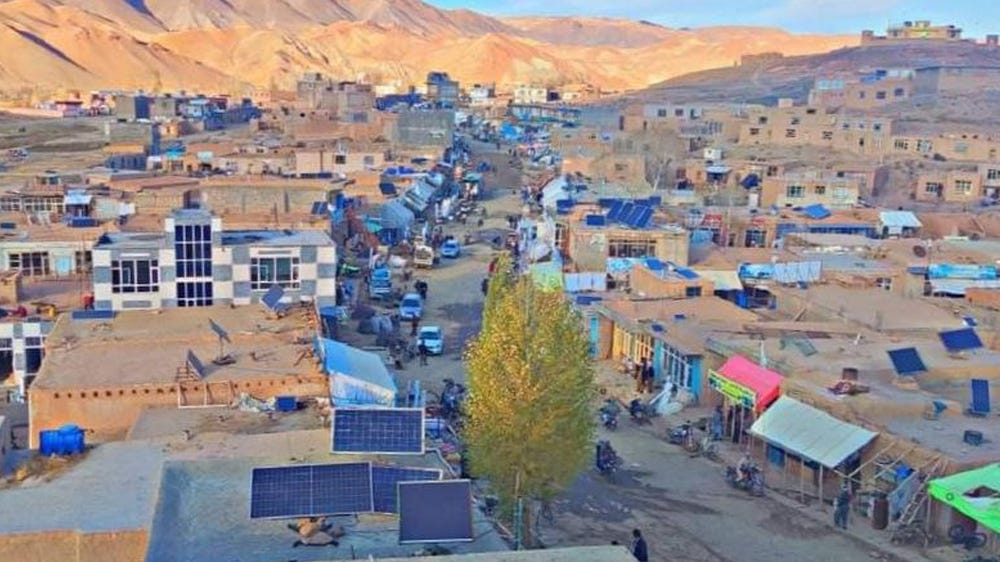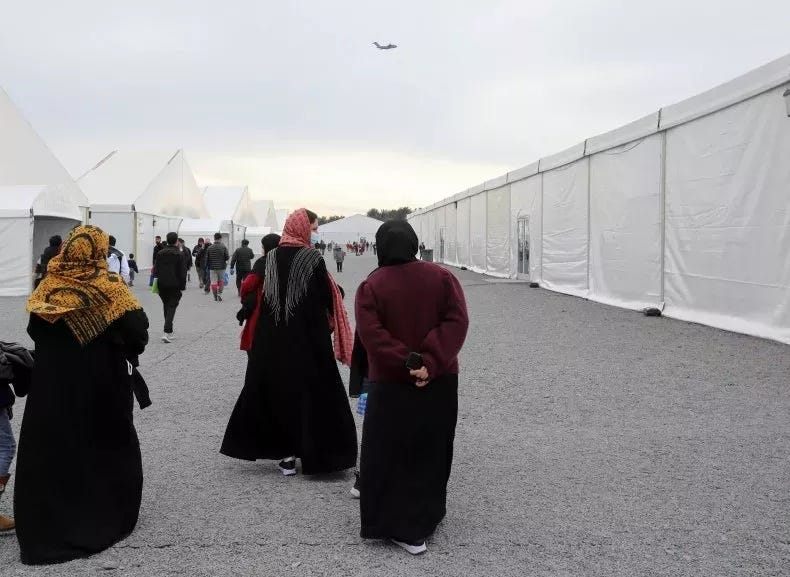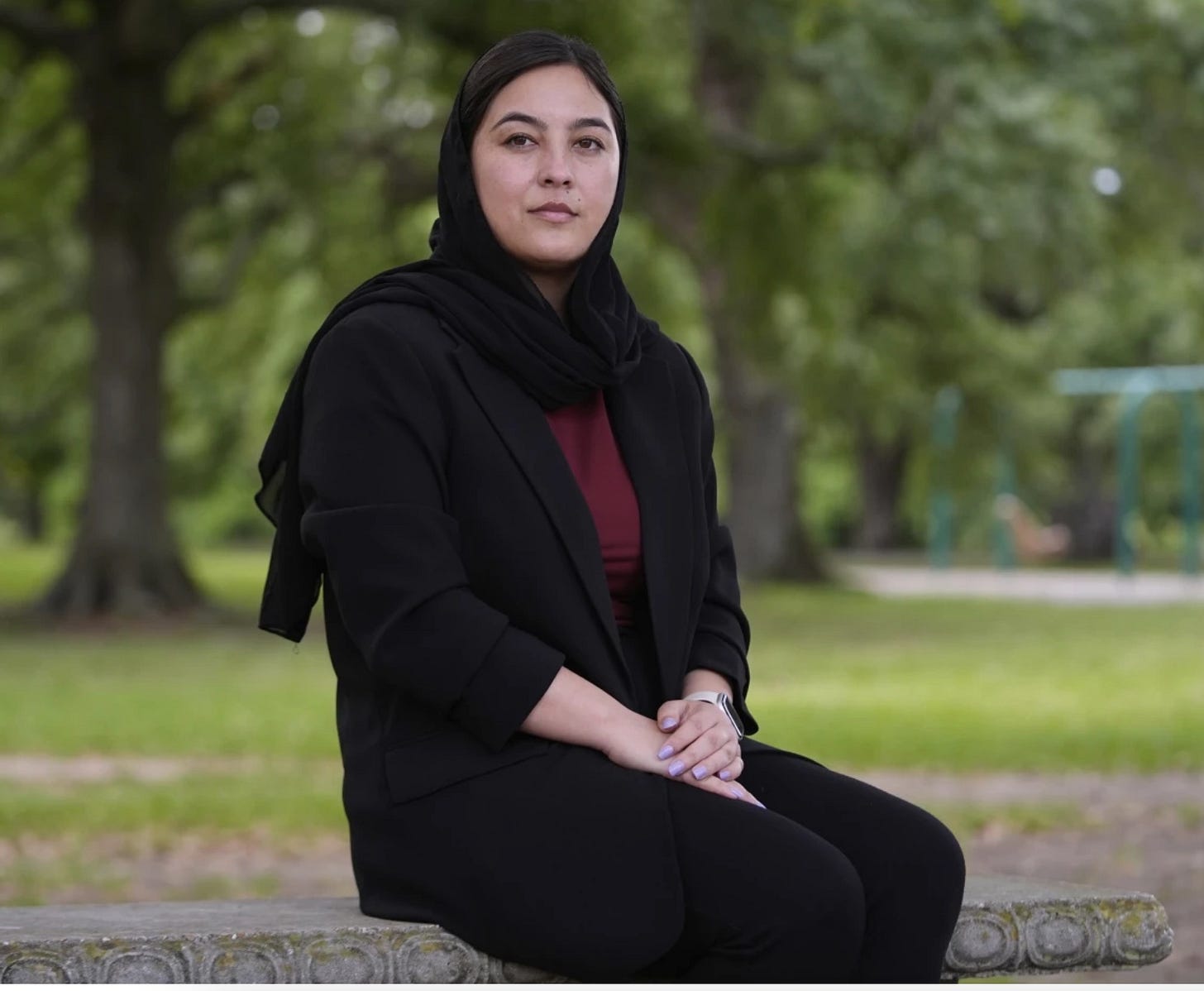Security and Conflict
Continued Unrest in Argo District Badakhshan – On Monday, in Badakhshan’s Argo district, residents of Atenjalu called for protests via mosque loudspeakers after Taliban forces arrested locals who had demonstrated against poppy field destruction. As crowds gathered, Taliban fighters reportedly withdrew—only to later launch a broader crackdown. Unconfirmed reports suggest hundreds of Taliban fighters from Taloqan and Faizabad assaulted protesters, arresting dozens and beating men, women, and children. Many residents fled the area to avoid further violence. The Taliban have not commented. Tensions remain high amid ongoing anti-narcotics operations and growing public unrest.
Taliban Fire on Student Protesters in Kabul – On Wednesday, students at Ghulam Haidar Khan High School protested the Taliban’s closure of a main school gate to make way for a planned commercial market. Taliban members fired into the air to disperse the peaceful protest. No injuries were reported.
Human Rights and Civil Liberties
80 Detained in Ghor – During a recent visit to Pasaband district in Ghor province, Taliban police commander Noor Agha Haidar arrested 80 people—mainly farmers, travelers, and laborers. Reports vary on the reasons for the detentions, citing accusations of opium cultivation or failure to attend prayers. Poppy eradication operations were reportedly carried out before the arrests. Detainees claim they were held for over 10 days without food, water, or legal justification in an overcrowded room. Observers say some individuals were targeted for opposing the Taliban. Local authorities have not addressed the detentions but confirmed the destruction of poppy fields.
School Girls Possibly Poisoned in Daikundi – On Wednesday, around 50 schoolgirls were hospitalized in Kiti district, Daikundi province, after suspected poisoning incidents at two schools. The girls experienced nausea, vomiting, dizziness, and shortness of breath shortly after arriving at class. Several are in critical condition. The source of the illness remains unclear, and Taliban authorities have not commented. Videos show unconscious students being treated by emergency medical teams.
Floggings – On Tuesday, four individuals were flogged in Sar-e Pul and one in Paktika.
Internal Politics
Discontent Surrounding Government Cuts – Following Mullah Hibatullah’s directive to cut 20% of personnel from the Taliban’s Defense Ministry, Interior Ministry, and Intelligence Directorate, rare internal protests have emerged. Disgruntled Taliban fighters have expressed outrage—via sarcastic chants, satirical videos, and emotional messages—over perceived favoritism and corruption in the dismissal process. Many accused commanders of branding loyal fighters as “undesirable” to protect their allies. Some lamented their sacrifices during the war, expressing feelings of betrayal. The backlash, especially visible in Taliban WhatsApp groups and on social media, underscores growing factional tensions between the Kandahar-based leadership and the Haqqani network, despite ongoing propaganda efforts to bolster support for Hibatullah.
Women and Former Republic Bureaucrats Targeted in Downsizing – The Taliban’s restructuring plan to downsize public offices is reportedly targeting women and former republic bureaucrats under the guise of administrative streamlining. Sources say the dismissals are politically motivated and lack transparency. Tens of thousands of jobs—especially in education, health, and law enforcement—are being eliminated. Internal Taliban divisions are further complicating the process. Critics warn the move aims to purge dissenters, enforce ideological conformity, and further marginalize women, deepening Afghanistan’s governance and economic crisis.
Mullah Hibatullah Issues Statement to Intelligence on Enforcing Religious Conformity – In a pre-recorded message to Taliban intelligence officials released Sunday, Mullah Hibatullah urged decisive action against any perceived insult to Islamic values, whether public or private. Labeling such behavior an ideological threat, he emphasized the intelligence agency’s role in safeguarding Islamic traditions. He called for inter-agency cooperation to shape public opinion under strict Sharia law but warned against arbitrary detentions, detainee mistreatment, or breaches of confidentiality.
Committee Formed for Census – The Taliban have formed a committee, led by the head of their statistics authority, to review a proposed national population census. The outcome will be presented at a future cabinet meeting. Authorities also ordered the accelerated issuance of maps for construction projects. Population figures remain contested: the Taliban estimate 35.7 million, while international agencies suggest over 44 million. The census remains contentious due to the lack of reliable data on ethnic group populations and the inherent political nature of ethnic populations data and power distribution in Afghanistan.
International Developments
US Court Ruling on Asylum Cases – In a May 6 press release, the IRAP, CWS, HIAS, and LCSNW welcomed a federal court’s compliance order in Pacito v. Trump, which mandates the U.S. government to resume processing and provide resettlement support for roughly 12,000 refugees conditionally approved before January 20, 2025. The court rejected the government's effort to limit relief to just 160 individuals and condemned its prior noncompliance. The order requires immediate action by May 12, including full reinstatement of services and funding for resettlement agencies. It remains unclear whether the Trump administration will comply. he full order can be found Here
Switzerland Denies Ethnic Based Deportation Plans – The Swiss government has denied claims that it intends to deport Afghan refugees based on ethnicity, calling such allegations “completely unfounded.” The response follows a Swiss media report suggesting internal discussions about deporting Afghan Pashtuns, which drew sharp backlash. Authorities clarified that asylum and deportation policies are not ethnicity-based, and the leaked documents were hypothetical. Afghan diplomats and UN officials, including Richard Bennett, welcomed the clarification and warned against conflating Pashtun identity with Taliban affiliation or safety concerns.
UN Seeks Aid for Returning Afghans – On Wednesday, the UN launched a $414 million appeal for its 2025 Integrated Response Plan to support 600,000 Afghan returnees. Of this, $64 million is allocated for emergency border assistance and $350 million for livelihoods, healthcare, education, and infrastructure in host communities. The initiative aims to assist deportees and vulnerable populations, calling for both immediate and sustained support to break Afghanistan’s displacement cycle and promote resilience. Chronic funding shortages continue to hamper implementation.
Hearing For Former Parliament Speaker Detained in Kenya – On Thursday, Zahir Qadeer, former deputy speaker of Afghanistan’s parliament, appeared in a Kenyan court amid a U.S. extradition request on drug and weapons charges. Detained nearly a month ago, Qadeer denies the allegations, claiming they are politically motivated due to his opposition to foreign intervention. His lawyer argues that the U.S. has provided no substantive evidence. Qadeer remains in custody, asserting that the charges are an attempt to silence him and tarnish his political legacy.
Freedom of the Press
Three Journalists Arrested in Takhar – On Wednesday, three journalists—Sayed Munir Hadaf, Asadullah Timur, and Nasratullah Ebrahimi—were detained by the Taliban in Takhar province and were reportedly tortured while in custody. The arrests followed a social media post by Timur about a dispute with a tailor linked to the Taliban’s intelligence chief. Hadaf and Ebrahimi were detained after attempting to secure Timur’s release. Sources say the Taliban’s criminal investigation department acted on direct orders from the intelligence chief.
Journalist Arrested in Ghazni – Also on Wednesday, the Taliban arrested Khushhal Radio director and presenter Sulaiman Rahil in Ghazni. Rahil, known for sharing reform-focused videos, had recently posted content criticizing local Taliban officials and highlighting the struggles of impoverished women. His arrest follows the similar detentions of journalists in Takhar. Rahil’s condition and whereabouts remain unknown.
Regional Developments
Trilateral meetings held in Kabul – On Sunday, the Taliban hosted a trilateral economic meeting in Kabul with China and Pakistan’s special envoys to discuss joint industrial zones, trade initiatives, and regional integration. Chaired by Taliban Acting Minister Nooruddin Azizi, the talks focused on economic cooperation, banking links, SME promotion, and organizing future trade exhibitions. Separately, China’s envoy Yue Xiaoyong formally invited Taliban Foreign Minister Amir Khan Muttaqi to visit Beijing, emphasizing China’s support for Afghanistan’s global engagement and economic development. The invitation has not yet been publicly addressed by Beijing.
Pakistan Special Envoy Visits Kabul – Pakistan’s special envoy for Afghanistan, Mohammad Sadiq Khan, visited Kabul on Friday for talks with senior Taliban officials, focusing on border security, economic ties, and Afghan migrants in Pakistan. This marks his second trip in a month amid rising tensions over deportations and cross-border violence.
Taliban Acting Foreign Minister to Visit Iran – Taliban Acting Foreign Minister Amir Khan Muttaqi will soon visit Iran for talks on bilateral ties, regional issues, and the deportation of Afghan migrants, with approval from Mullah Hibatullah. This will be his third visit to Iran since 2021. Discussions are expected to cover refugees, trade, and political cooperation. Meanwhile, a proposed visit to Pakistan remains unapproved by the Taliban’s supreme leader.
Taliban Embassy In Tehran Pauses Identity Verification – On Monday, the Taliban-run Afghan Embassy in Tehran suspended all services except identity verification until May 21 due to overcrowding. The move comes amid rising demand from Afghan migrants needing identity confirmation for legal processing in Iran. Many have criticized the delays and long queues. While the suspension aims to address the backlog, it may worsen difficulties for Afghans seeking consular services, as Iran continues deporting those without proper documentation.
Eight Afghans Killed in Tajik Mine Explosion – On Friday, eight Afghan men from Shahristan district, Daikundi, were killed in a gas explosion at a coal mine in Ayni district, Sughd province, northern Tajikistan. The victims had been sent by an Afghan contracting company reportedly linked to a Tajik firm called Faraz. Local sources identified the company officials as Rouhullah and Taqi Dilsouz. Neither Tajik nor Taliban authorities have commented.
Afghan Goods Stuck In Karachi – Over 2,000 Afghan trade containers are stranded at Pakistan's Wagah and Karachi ports due to halted trade between India and Pakistan following a deadly attack in Pahalgam, Kashmir. Pakistan has blocked the transit of Indian goods, disrupting Afghan exports—particularly dried fruits via the Attari-Wagah route—and imports of Indian goods through Karachi. Afghan traders are facing mounting losses, with around 150 containers stuck at Wagah and 2,000 at Karachi, as regional tensions block key overland trade routes.
Truck Driver Strike at Farah-Iran Border – Drivers and workers at the Farah border market with Iran have been on strike since Sunday, May 4, protesting the treatment and restrictions imposed by Iranian border guards. Protesters cite unequal truck entry—800 Iranian trucks versus 100 Afghan—and limitations on Afghan laborers despite prior agreements. Additional complaints include extortion, poor working conditions, and mistreatment by Iranian guards. Strikers vow to continue until their demands are addressed. Taliban officials have yet to respond publicly.
Taliban Visit to Qatar – On Monday, a Taliban delegation led by Deputy Interior Minister Abdul Haq Akhund visited Qatar to discuss counter-narcotics efforts and explore expanded cooperation with Qatari officials. While no specific outcomes were disclosed, both sides emphasized the importance of strengthening cooperation and bilateral relations.
Miscellaneous
Flooding in Badakhshan – This week, floods triggered by heavy rainfall in Badakhshan’s Baharak, Jurm, and five villages in Yamgan district have devastated the region. At least one person died, over 170 homes and more than 2,000 acres of farmland and orchards were destroyed, and around 300 livestock perished. Villagers report the complete loss of shelter, food, and possessions and criticize the Taliban for failing to provide aid. Damaged infrastructure includes a clinic, a power station, and water pipelines. The UN’s FAO confirmed that over 1,000 families were affected and noted ongoing assessments. Videos show blocked roads and stranded vehicles, compounding the crisis.
Flooding in Jalalabad – On Thursday, heavy rainfall triggered flash floods in Jalalabad and parts of Nangarhar province, killing one person and injuring 32. Homes were damaged, crops destroyed, and power and communications disrupted. Kama, Khogyani, and Jalalabad were the most affected. Taliban officials stated that aid agencies have begun assessments.
Measles Spreading Rapidly in Afghanistan – The WHO has warned of a rapidly growing measles outbreak in Afghanistan, urging parents to vaccinate their children to prevent severe illness. While no exact case numbers were provided, the WHO reported 111 measles-related deaths in early 2025. Doctors Without Borders noted over 4,000 suspected cases in Herat, Balkh, and Helmand, stating that one child is dying daily.
NEXT WEEK
CONFLICT TRACKER
Last 7 days (information may be incomplete)
DATE
GROUP
LOCATION
INCIDENT CONFIRMED
DETAILS
5/7/25
AFF
Anaba, Panjshir
Claimed
1 killed, 2 wounded
5/9/25
AFF
Bandar e Khan Abad
Claimed
2 Talibs killed, 1 wounded
NEXT WEEK
In Afghanistan, flooding is expected in many parts of the country over the coming week. Residents in flood-prone areas should monitor weather forecasts closely and take appropriate measures to ensure their families' safety. Interprovincial travel is likely to be disrupted, and those traveling should remain aware of conditions and exercise caution, as flash flooding is likely.
Protests in Badakhshan related to poppy eradication appear to have subsided for now. However, similar protests may reoccur or emerge in other regions as eradication efforts continue.
In Pakistan, a ceasefire has been brokered between India and Pakistan, though its durability remains uncertain. Individuals in Pakistan—especially those near the Indian border—should stay informed and exercise caution. Travel to or from Pakistan, particularly air travel, is likely to be impacted if fighting resumes.
Deportations of Afghans continue. Those holding ACC documents or waiting for third-country resettlement flights are primary targets. However, PoR card holders and individuals with valid visas have also been detained and deported. House-to-house raids are ongoing, especially in Islamabad and Rawalpindi. Afghans in these areas should remain alert to active search operations. All Afghans in Pakistan are advised to limit unnecessary movement, avoid crowds, and carry valid identification at all times.
Similar detentions and deportations are occurring in Iran, though less detailed information is available about specific cities. Afghans in Iran are strongly urged to maintain valid visas and carry proper documentation—though even those with valid documents may still be detained.
In the United States, Temporary Protected Status (TPS) for Afghans is set to expire on May 20. A case has been filed with the court that may extend the deadline, but Afghans relying solely on TPS or who have received a self-deportation notice should seek legal assistance immediately. ICE stops remain a possibility, and Afghans are reminded to carry documentation proving their legal status at all times.
There have been no changes to the SIV program. Case processing continues, but interviews must now be scheduled in a third country, as flights to Doha and other processing centers have ceased. SIV holders who have completed their interviews and received visas may self-fund flights to the U.S.; however, no government assistance will be available upon arrival. Travelers are encouraged to ensure they have a support system in place to help with initial expenses and accessing benefits. The possibility of a travel ban for Afghans still exists, so those with valid visas are urged to relocate as soon as possible, if able.
This week, U.S. courts issued an order requiring the resumption of refugee case processing, specifically for individuals who have already passed security vetting and interviews. However, it is unclear whether the Trump administration will comply with the ruling. Applicants should not sell property, relocate, or take similar steps based on this court decision alone.
All Afghans in the U.S.—including Green Card holders—are advised to avoid international travel at this time due to the potential implementation of new restrictions.
Resources for Afghans are available:
Parole assistance – Here
Resources for recent SIV arrivals – Here
Support for recent refugee arrivals – Here
Updates on U.S. visa cases and legal developments – Here
Information on Green Card holder travel – Here
TPS information can be found Here
REGIONAL ROUNDUP
IRAN
Detention and Deportation of Afghans Continue – On Thursday, a video surfaced showing a refrigerated truck unloading Afghan migrants at the Mersad camp, located about 30 kilometers from Kermanshah, Iran. Some migrants were seen lying on the ground after disembarking, with a woman heard crying in the background. Witnesses claim that Iranian authorities used the truck to transport even those with legal documents, allegedly requiring them to prove the legal status of their family members.
PAKISTAN
India and Pakistan Fighting – This week, India and Pakistan engaged in a sharp military escalation following a terror attack in Pahalgam. On May 7, India launched cross-border airstrikes under “Operation Sindoor,” reportedly killing Jaish-e-Mohammed leader Abdul Rauf Azhar. Pakistan responded with drone and missile strikes. At least 49 people were killed across both countries, including civilians and military personnel. Airspace near the border was closed by both sides, and commercial flights were diverted. The Indus Waters Treaty remains suspended. A U.S.-brokered ceasefire took effect on May 10, though minor violations have since been reported. Tensions remain high despite diplomatic calls for restraint.
Deportations and House to House Searches Continue – Deportations have continued this week with 18,000 Afghans deported to Afghanistan, despite the Torkham border being closed from Friday to Saturday due to flooding. On Thursday, Pakistani police conducted door-to-door searches in the Baharko area of Islamabad. Similar night raids took place on Saturday in Faisal Town, Rawalpindi. The operations targeted Afghan migrants, many of whom are awaiting visa renewals. Witnesses reported that police did not accept tracking numbers as proof of ongoing visa processing, prompting some migrants to go into hiding.
Changes to Border Rules at Torkham – Beginning May 29, Afghan drivers will be required to present valid visas in their passports to enter via the Torkham border. This ends the previous system that allowed entry with temporary one-year permits, especially for drivers with tribal ties. Notices have been posted, and officials confirmed that old permits will not be renewed. Afghan traders and drivers have met with the Taliban consul in Peshawar seeking a reversal. The policy change may disrupt cross-border trade for undocumented Afghan drivers.
SPOTLIGHT ANALYSIS
Supporting Afghanistan’s civil society: lessons learned and policy pathways
Solidarity Commission for Afghanistan
Following the fall of the Taliban regime in 2001, the international community made significant investments in civil society in Afghanistan. The dominant model of engagement was with urban-based NGOs with little downward accountability and representation within the Afghan society. While NGOs were and continue to be crucial in providing services to underserved communities across Afghanistan, the narrow definition of civil society—i.e. formalised and often lacking deep roots in the Afghan context, tradition, and history—has implied exclusion and weakening of other expressions of civil society.
At present, the Islamic Emirate of Afghanistan (IEA) takes a critical stance towards international NGOs (INGOs), with increased taxation, control, bureaucracy and limitations of women’s possibilities for employment and being part of elected organs. Afghan civil society organisations, especially women’s rights organisations, face shrinking space and severe repression. At the same time, there are significant decreases in international development cooperation with Afghanistan, most notably from, but not limited to, the cuts in development aid by the US administration.
AFGHAN NEWS
‘Whipped in front of everyone’: three women on being flogged by the Taliban
Rad Radan
Three Afghan women who were brutally flogged in public by the Talibanafter being accused of “moral crimes” have bravely spoken out about the cruelty they endured.
More than 1,000 people – at least 200 of whom were women – are now known to have been humiliated in public floggings since the Taliban’s return to power in 2021, according to court records and media reports. The true numbers are probably much higher.
Taliban Seize Half of Cash Aid from Needy Families in Western Afghanistan
Kabul Now
Taliban authorities in the western province of Ghor are forcibly reclaiming half of the cash aid distributed to impoverished families, citing the construction of a local road as justification, local sources said.
About a month ago, the aid group Razi Organization provided cash assistance to 250 families in Lal wa Sarjangal district. But the district governor and police chief, appointed by the Taliban, are now reportedly seizing half of each family’s share by force.
Gender Apartheid And Mental Health Crisis In Afghanistan
Dr Ewelina U Ochab
On April 30, 2025, Rukhshana Media, an Afghan women’s media organization, reported on the tragic death of a young Afghan woman. The woman died after setting herself on fire in Taywara district, Ghor province, in an alleged attempt to escape a forced marriage. The Taliban de facto authorities have not commented on the case. Human rights organizations working on the situation in Afghanistan have been warning about the growing issue of suicide among women in Afghanistan, which they link to the omnipresent restrictions on women and girls in Afghanistan that effectively erase them from public life.
REGIONAL NEWS
India-Pakistan ceasefire appears to hold after early claims of violations
ABC Australia
A ceasefire between India and Pakistan appears to be holding after both nations blamed the other for initial violations of an agreed-upon truce, as United States President Donald Trump vowed to help the arch-rivals find a solution on the disputed Kashmir region.
The ceasefire took effect on Saturday and followed four days of intense fighting between the nuclear-armed neighbours.
anian Political Prisoner Accuses Authorities Of Negligence In Afghan Inmate’s Death
Afghanistan international
An Iranian political prisoner has accused prison authorities of negligence and abuse in the death of an Afghan inmate at Ghezel Hesar Prison.
Ahmadreza Haeri, who is currently serving his sentence at the facility, made the allegation in an open letter addressed to Iran’s judiciary chief. He claimed the inmate, Nabi Bayati, died after being denied medical care during a hunger strike and described the case as an example of “systematic killing.”
INTERNATIONAL NEWS RELATING TO AFGHANISTAN
Trump Admin Faces Lawsuit Over Ending More Migrant Protections
Dan Gooding
The Trump administration is facing another legal challenge over its immigration policies, after it was reported Temporary Protected Status (TPS) would be cancelled for thousands of Afghans and Cameroonians.
In a court filing shared exclusively with Newsweek, immigration advocacy group CASA said it was suing Secretary of Homeland Security Kristie Noem and the Department of Homeland Security (DHS) for failing to use official channels to cancel the legal status of individuals who had fled violence and instability in their home countries.
Can’t go forward, can’t go back: Afghan refugees stuck in Qatar wait for a way forward
Rebecca Santana and Farnoush Amiri
Negina Khalili’s family sold their house and possessions in Afghanistan and flew to a U.S. base in Qatar in January, preparing for the last step in emigrating to America. Thirteen days later, the Trump administration took office — and suspended the refugee program that would have let them in.
Now they are among a small group of Afghans who advocates say are waiting at a camp in Qatar for permission to one day come to America.
“If they send them back to Afghanistan,” Khalili said, “that will be a huge risk for my family.”
Afghani to the Dollar: $1 – 70.24 AFN (As of May 11)










